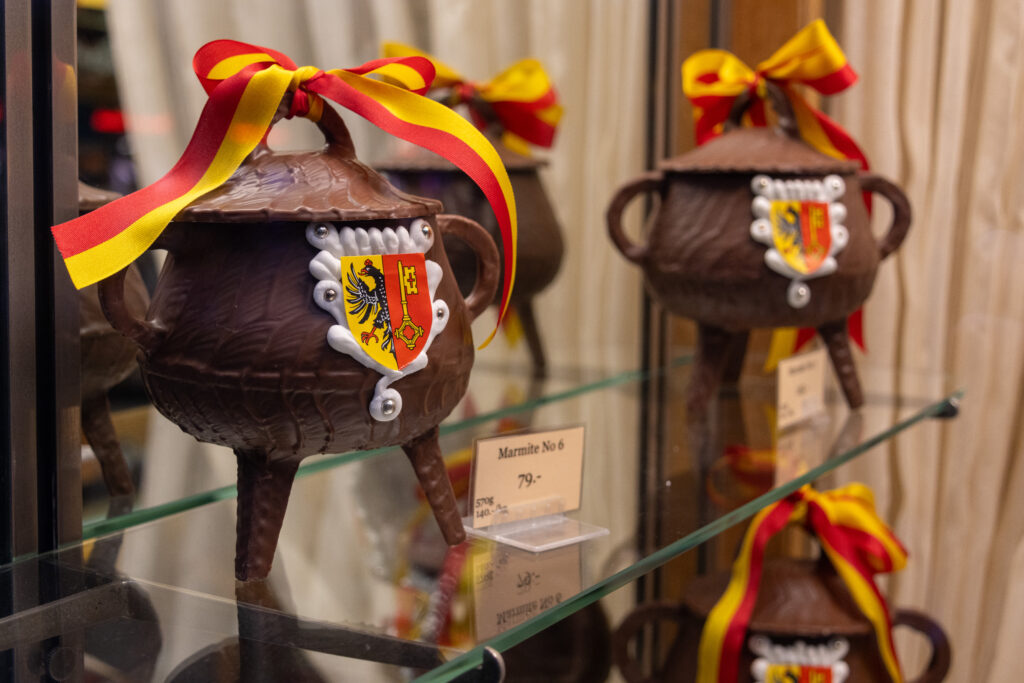
In the last ten minutes of the Euro 2020 match between Switzerland and France, the sporting world faced one of the biggest shocks of the tournament: underdog Switzerland, who hadn’t reached the quarterfinals since 1954, scored two points against France, former World Cup champion. I remember that moment vividly. My then boyfriend (now husband) and I opened our small balcony window to the sound of drunken men yelling in the bars below us. We looked up to see other apartment dwellers on their microscopic balconies, cheering loudly enough to praise the sports gods. Passing cars honked incessantly, as if celebrating a Middle Eastern wedding. It was the most noise I had heard after 6 p.m. in a Beaver Cleaver clean city that soundly sleeps.
The game was extended through a series of penalty kicks. The stars seemed misaligned, as France’s MVP Kylian Mbappé was the only athlete amongst the lineup to have missed his shot. Little did Mbappé know that his defeat would land Swiss goalkeeper Yann Sommer a role in several grocery store commercials.
And while Switzerland would go on to lose the following week and subsequently be kicked out of the tournament, it wouldn’t matter. For she won against France.
The following year the game was a topic in local satirical theater production La Revue. While I, perhaps like many Swiss people, cannot recall the ultimate winners of the 2020 Euro Cup, that match will forever be ingrained in my mind.
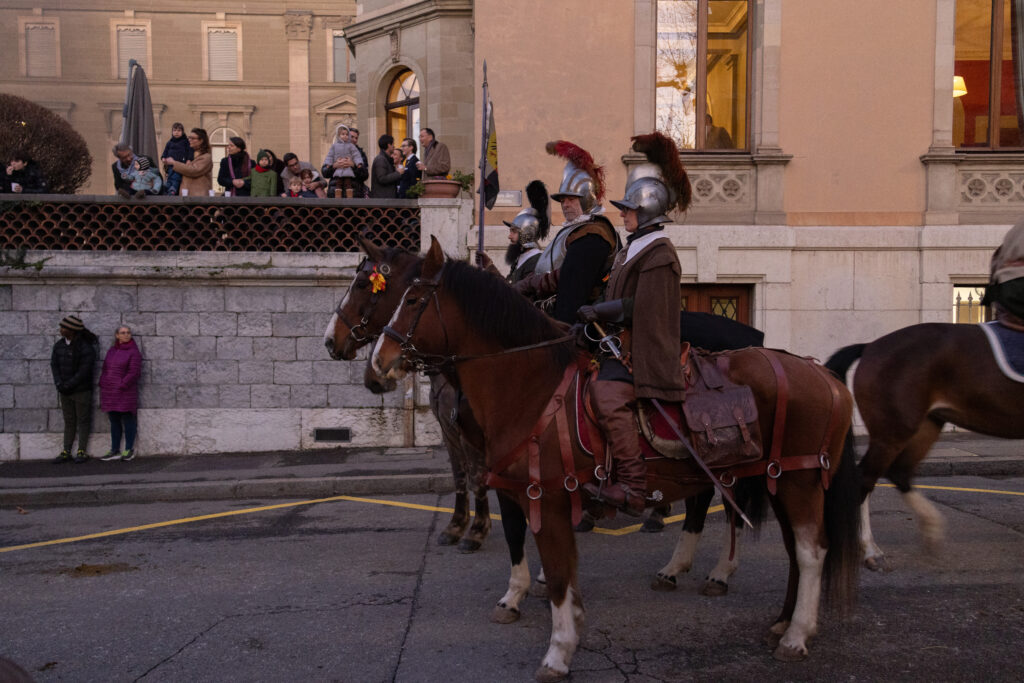
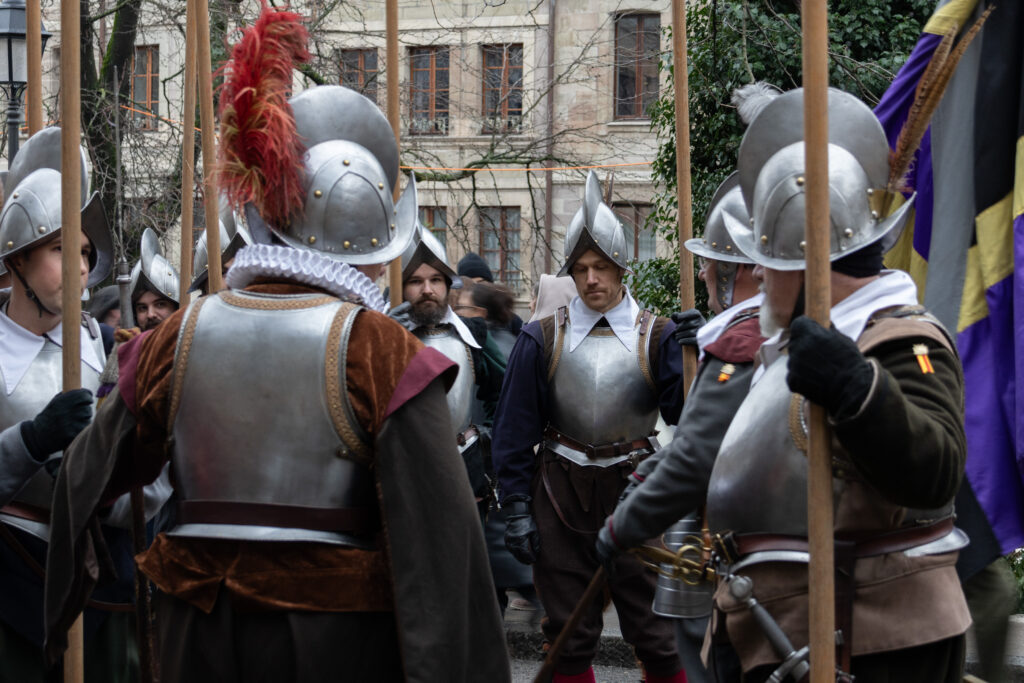
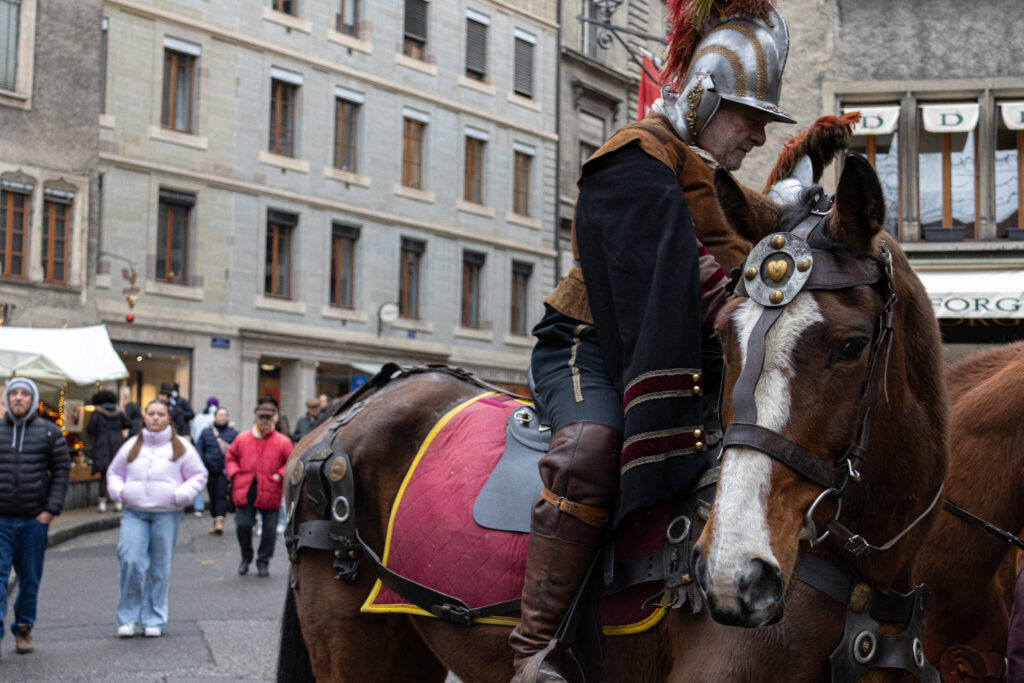
Something about France’s defeat in the 2020 Euro reminds me of Geneva’s yearly Escalade celebration. Celebrated on 12 December, the Escalade commemorates the victory of Protestant Geneva in 1602 against the conquest of the Duke of Savoy and his Catholic cronies. According to the historical association Compagnie de 1602, which organizes several historical re-enactments and parades over the Escalade weekend, Geneva’s 300-strong civilian army was up against 2,000 Savoyards – French soldiers from the Savoy region.
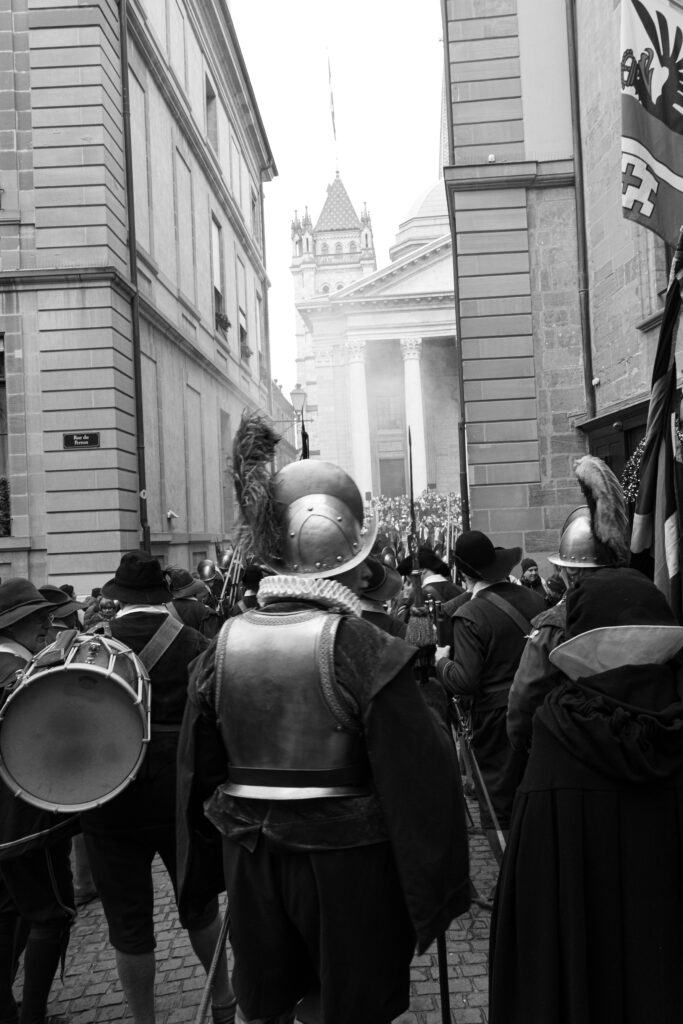
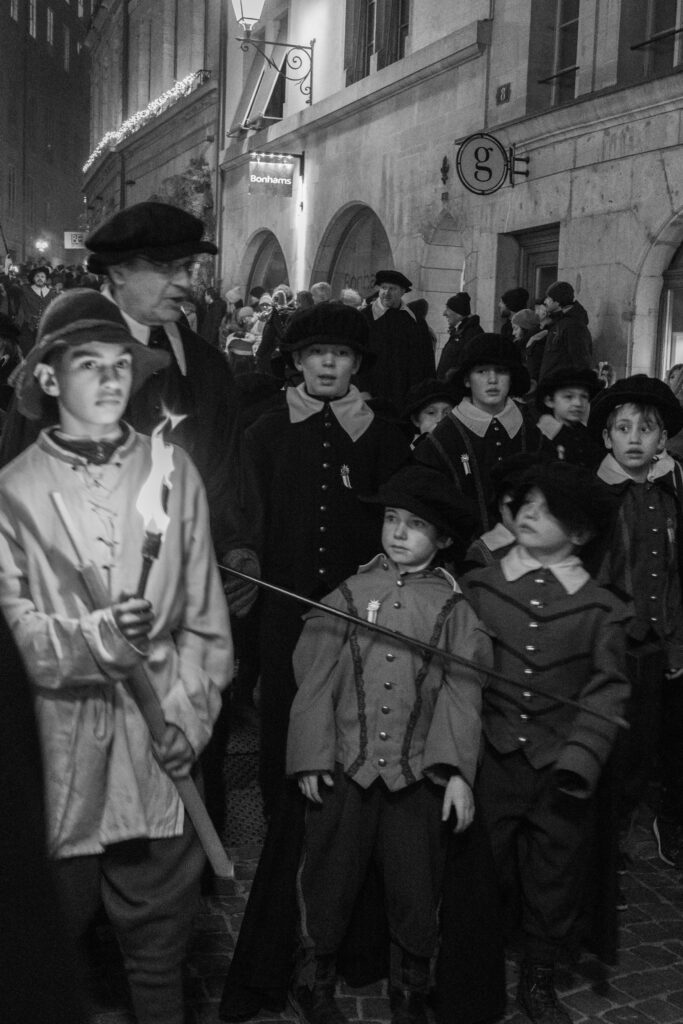
The name Escalade derives from the French verb Escalader meaning “to climb”. The Savoy army planned to install long ladders upon the stone wall leading up to the city gates, with soldiers pouring into Geneva in a surprise attack while its citizens slept. Without much time to prepare, Geneva civilians are depicted in paintings as wearing night shirts instead of proper armor. Women and children are also illustrated as actively participating in the protection of their city.
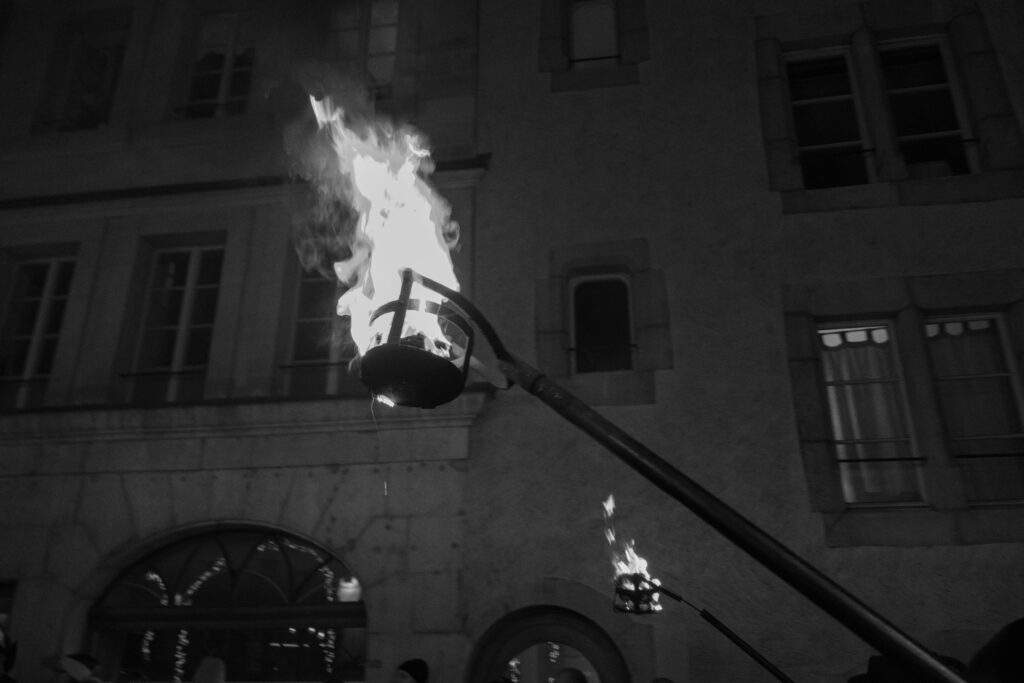
Perhaps the most unique legend from the battle is that of la Mère Royaume, who, in her sixties, became a national symbol of Geneva’s independence when she knocked out a Savoyard by spilling the hot contents of a cooking pot from her window. During her time, the bonnet wearing heroine was known as Catherine Cheynel, ironically a French woman from Lyon who fled to Geneva during the persecution of the Huguenots, protestant practicing French who had been ordered to renounce their faith and join the Catholic church.
In a very Swiss matter of speaking, the story of Mère Royaume was comical, lessening the sting of political and religious sensitivities between Geneva and its snail eating neighbor.
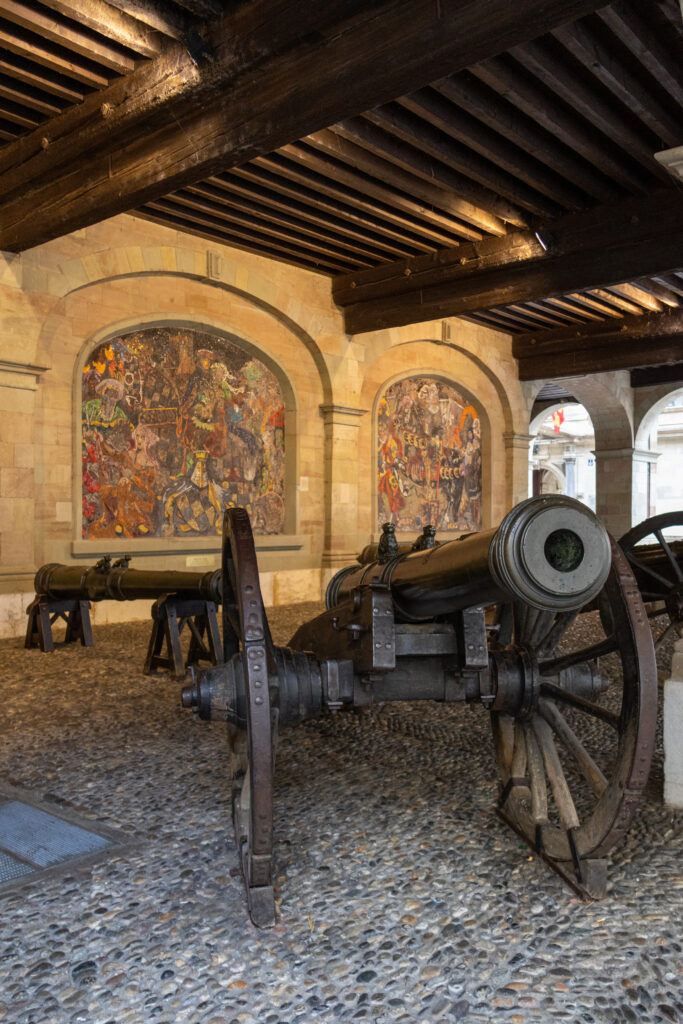
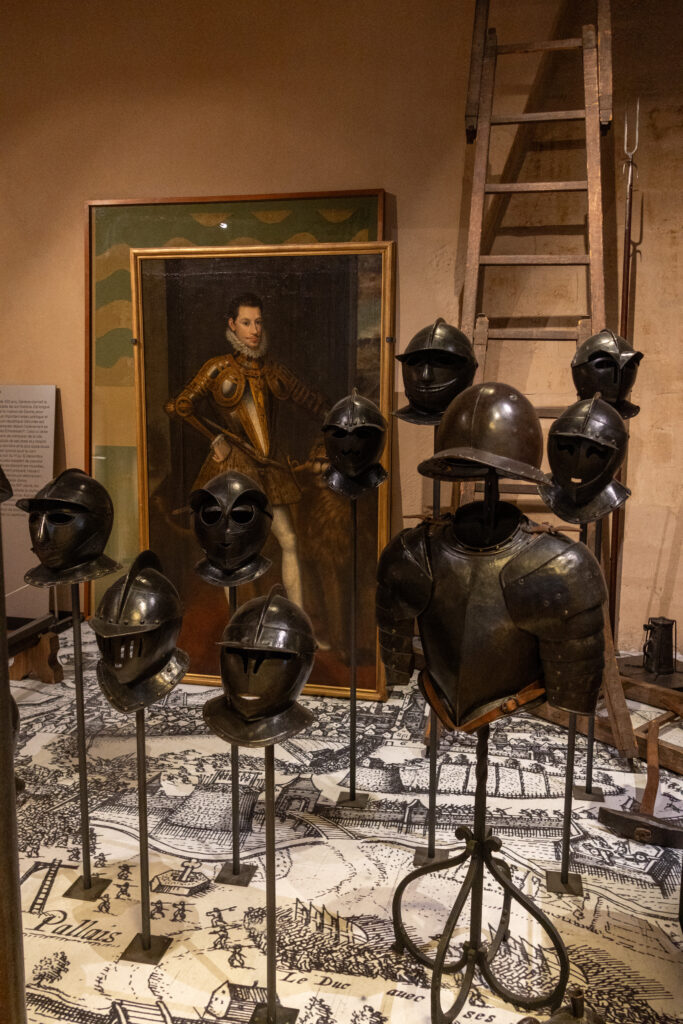
“This tradition is built on lies,” my friend from Colombia whispered during a chocolate cooking pot making workshop with Procope, pasting a candied Geneva coat of arms to a miniature chocolate bowl.
In the weeks leading up to l’Escalade, chocolate shops throughout Geneva display embellished chocolate pots, some which could fit a small human, worth 50, 200, or even 500 Swiss francs depending on the time needed to handcraft, the quality of the chocolate, and the arrangement of marzipan corn, carrots, and radishes representative of a hot vegetable stew.
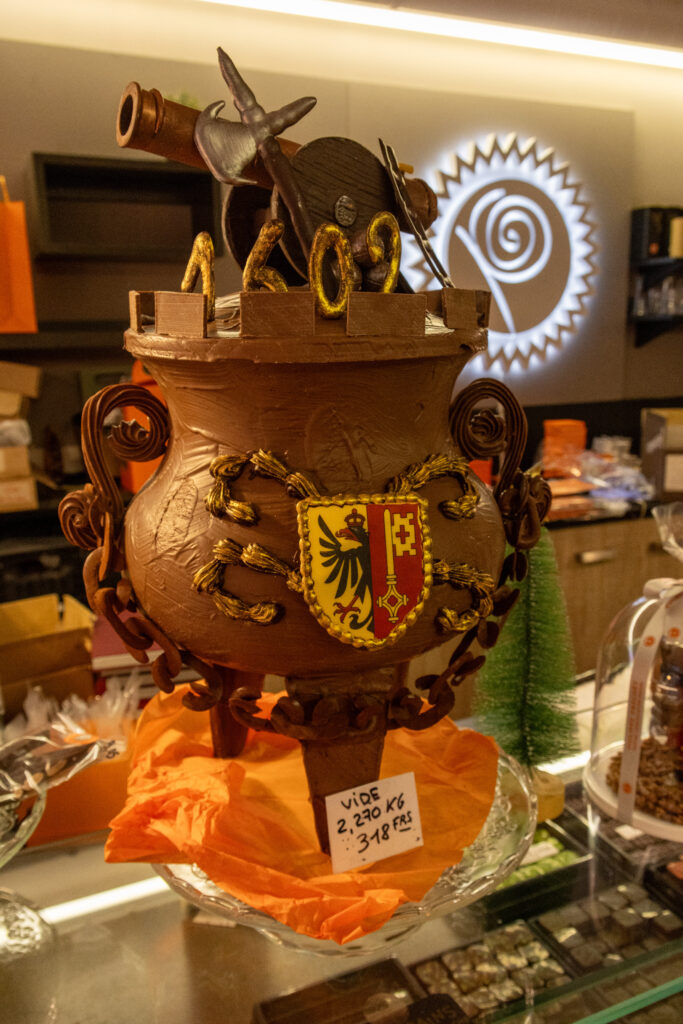
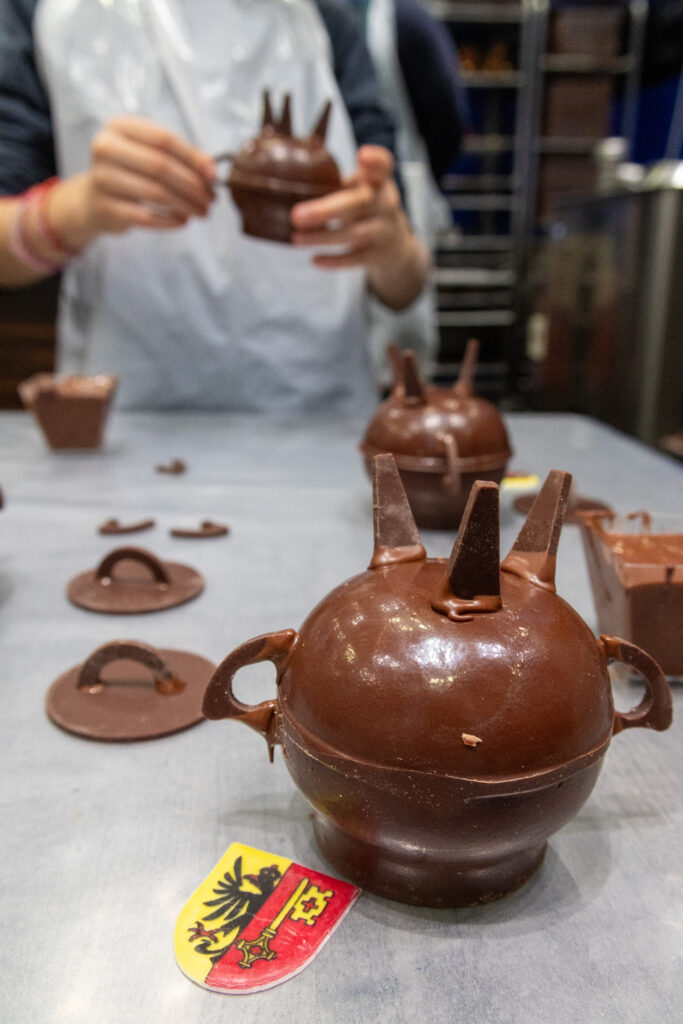
On the 12th of December, the oldest and the youngest in the room will clasp fists and recite “Ainsi périssent les ennemis de la République,” translating to “Thus perishes the enemies of the Republic,” before smashing the beautifully constructed chocolate cooking pot to pieces.
After five years in Geneva, I joined a couple of friends at a workshop organized by Procope to make our own miniature chocolate cooking pots. The workshop was opened in 2023 by Maison Desplanches, a 7th-generation family bakery that introduced the first bean-to-bar in the city. The concept of producing chocolate on a smaller scale enables the Desplanches family and other bean-to-bar producers to trace cocoa beans from the farm to its final transformation in-house.
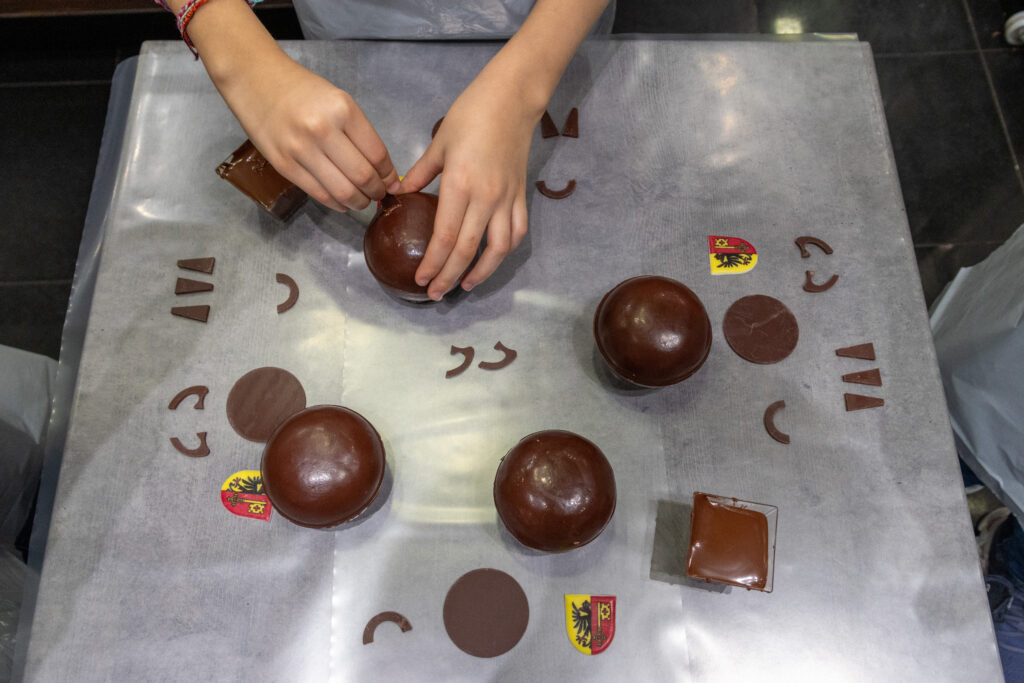
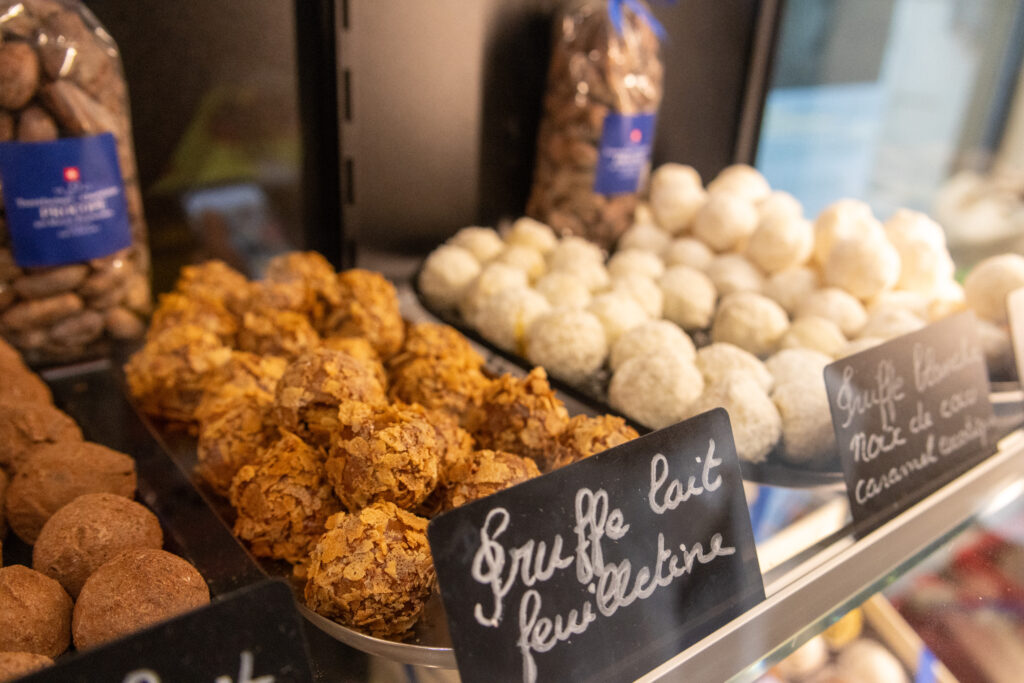
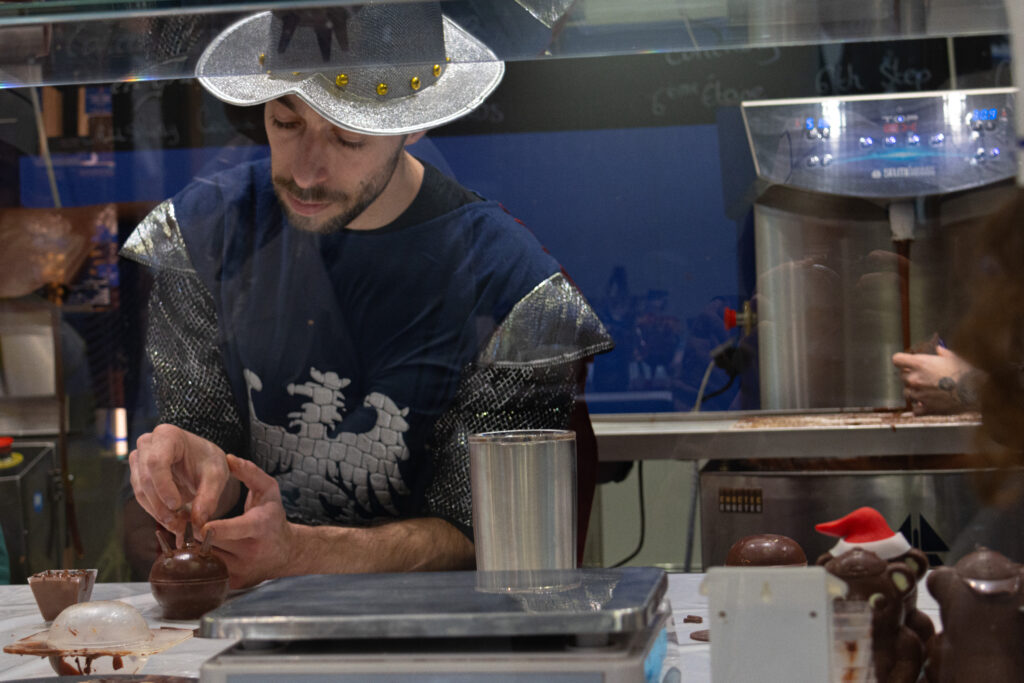
Our workshop was not conducted by Oompa Loompas, but rather a chocolatier disguised as a knight for the Escalade celebration. Local newspaper La Tribune de Geneve writes that the Desplanches family regularly changes suppliers in order to introduce a wide range of cocoa flavors to the hungry palette. We were offered to taste some of the beans, hailing from a sustainable farm in Venezuela. The bitter tasting beans are roasted in Geneva and sorted by hand, then grounded into a paste before being further refined with sugar and cocoa butter. Artisanal chocolate is mixed in a machine for up to 24 hours, a much shorter timeframe when compared with large manufacturers, giving chocolate a richness in flavor, such as notes of cinnamon, hazelnut, coffee, apricot, plum, basil, or mint.
Besides demolishing a chocolate cooking pot, the Escalade celebration includes a race tracing the route taken by the French throughout the city the weekend prior, with some 57,000 participants, the largest number to date, taking part in 2024. A narrow secret passage that was used to defend the city walls opens to the public during the Escalade weekend. The rest of the year, it is barred off to the public by an iron gate for safety reasons, due to its steep slope, with walls sometimes only 50 centimeters (or 19 inches) apart.
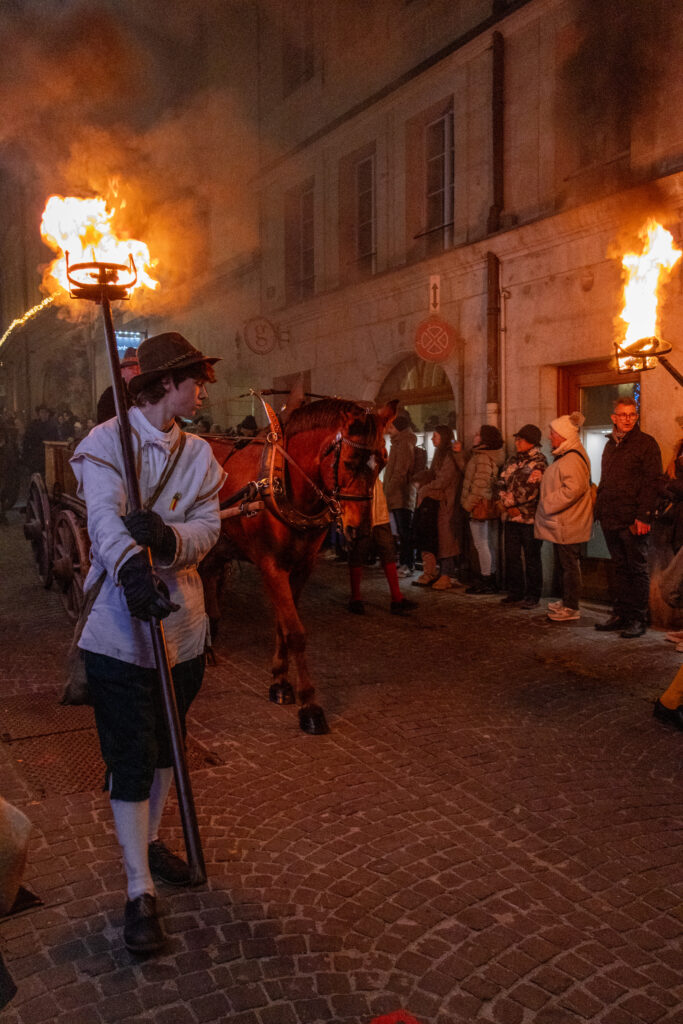
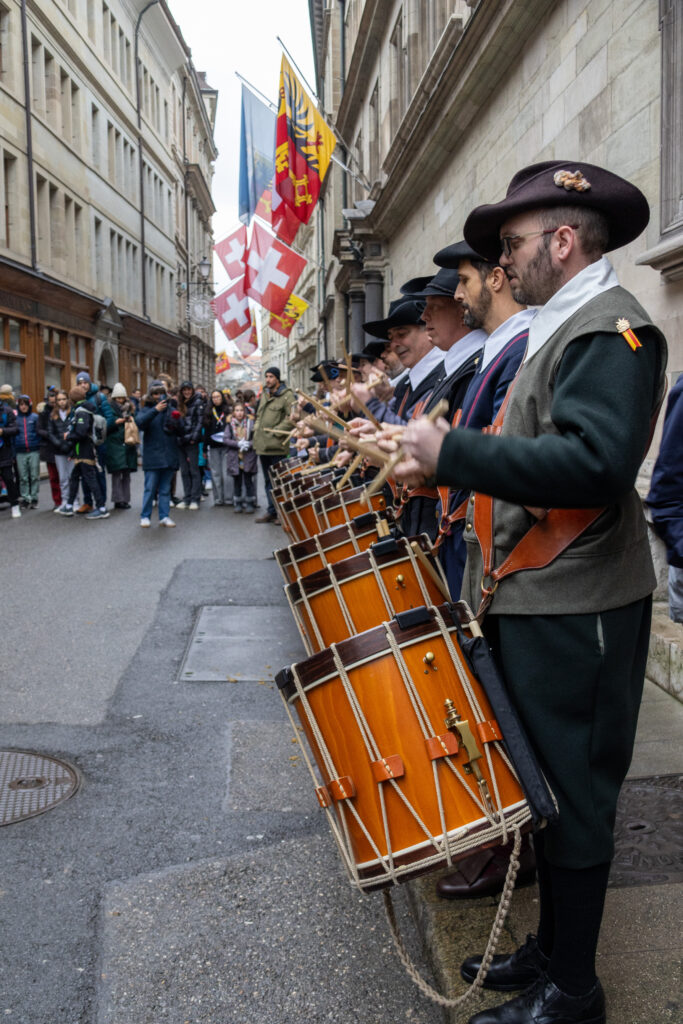
As I tip toe my way along the cobblestone streets in aim to avoid horse poo in increasing piles across the old city, I am distracted by two men in historical clothing fencing in one corner, and another group sword fighting in the other. Children line up to ride ponies or watch blacksmith demonstrations. Feeling transported back in time, I accidentally bump into a woman holding two glasses of mulled wine. After a few apologies, she rolls her eyes, perhaps associating me with the Savoyards.
As night falls, a 7-kilometre (just over 4 miles) parade of some 800 participants dressed as horsemen, armed soldiers, and herds of Mere Royaumes, winds its way through the city, ending on the Place du Bourg-de-Four, the main square in Geneva’s old town. The crowd gathers around a fire pit, declaring victory over the Savoyards and singing Cé qu’è lainô, Geneva’s anthem recounting the story of the Escalade.
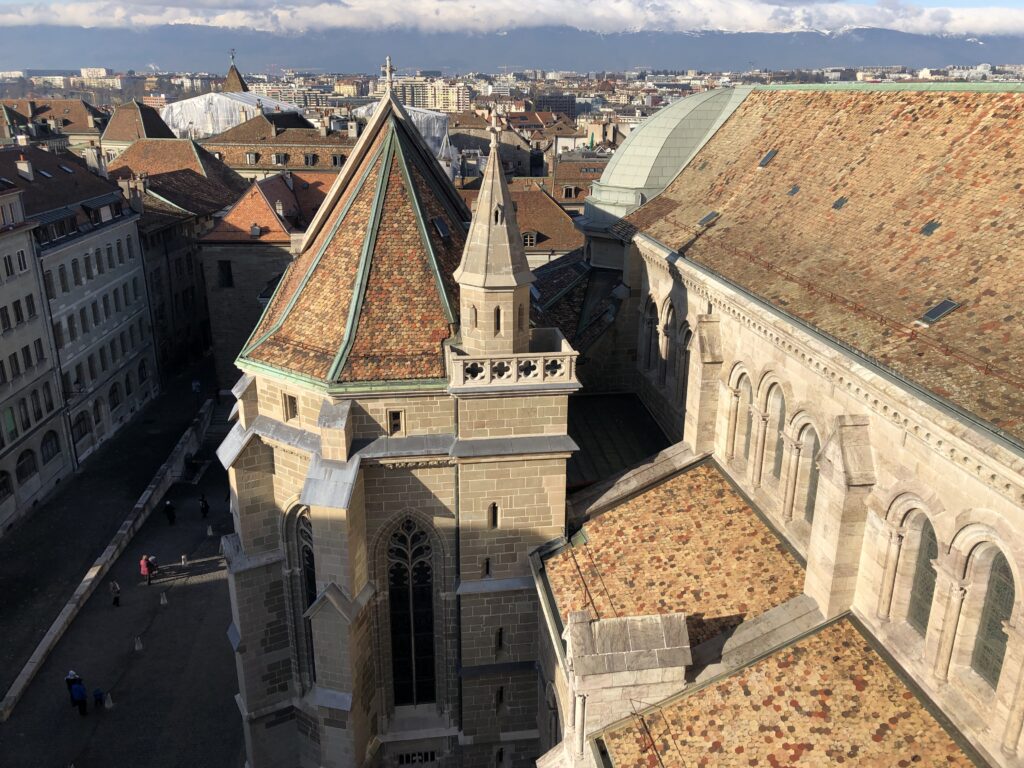
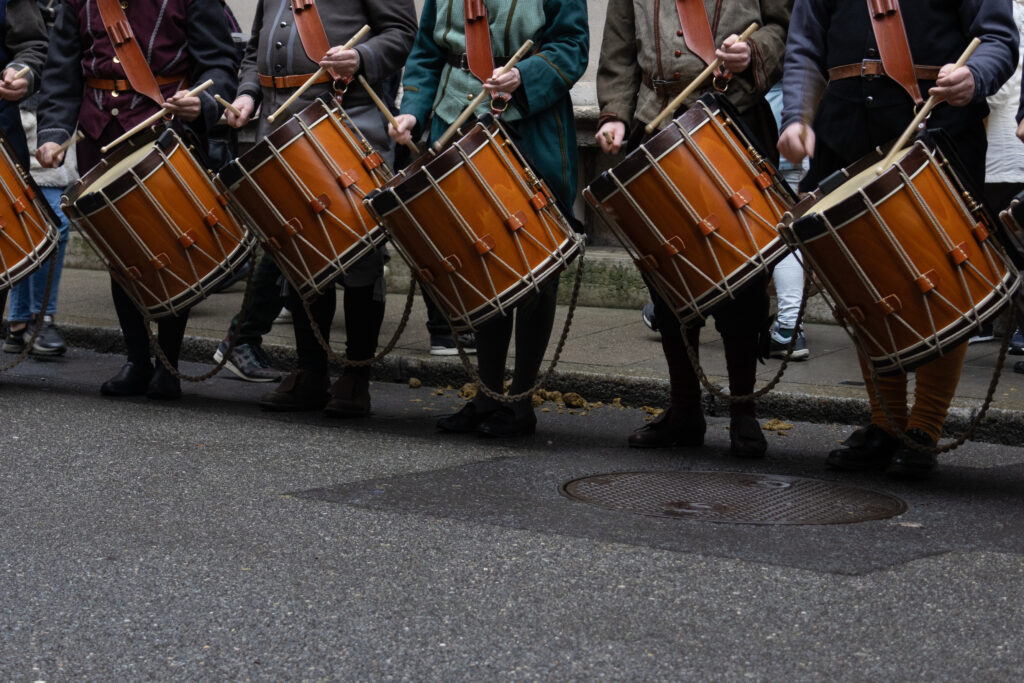
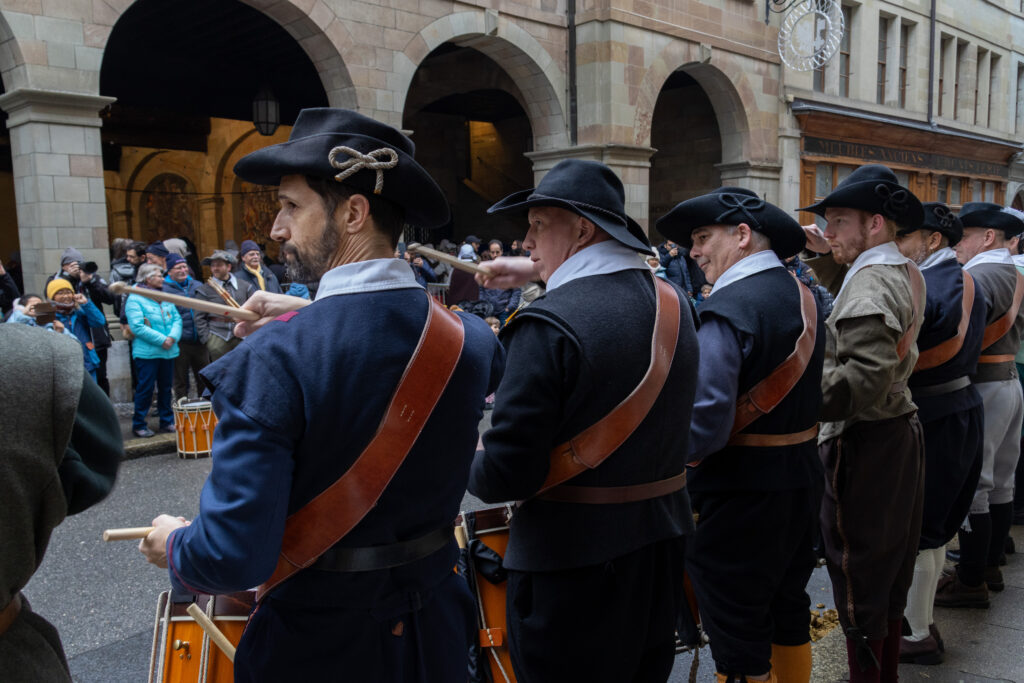

Amazing article! rich in details, fun facts and personal life experience!
Thank you so much for taking the time to read! You must go if you are ever in Geneva!